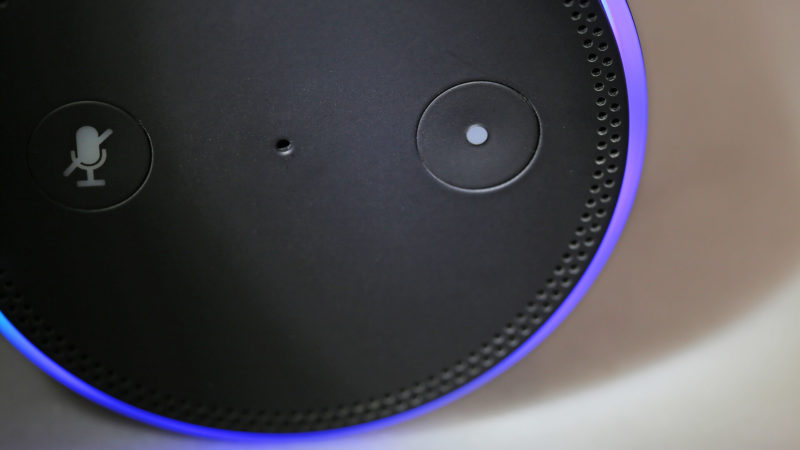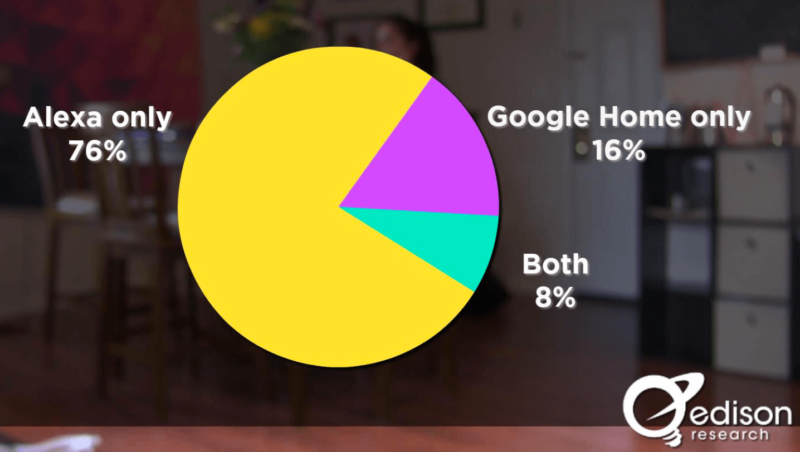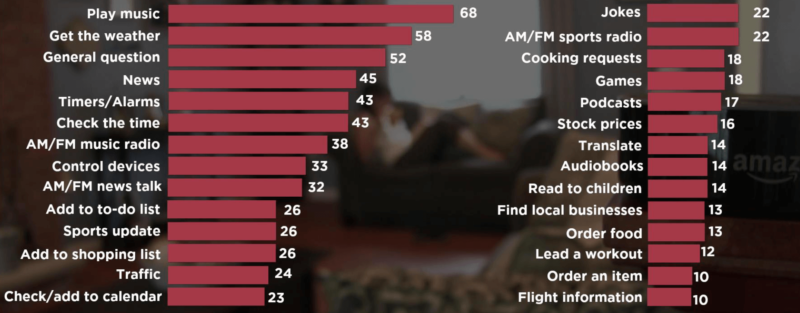NPR survey: Americans love their smart speakers, 42% call them ‘essential’
There may already be 20 million virtual assistants in US households.

Americans love their “smart speakers” and they plan to buy more of them. That’s according to a recent, in-depth consumer study from NPR and Edison Research.
The survey polled more than 1,600 respondents (equally divided between device owners and non-owners) and found that 76 percent of owners had Amazon Echo devices, while 16 percent had Google Homes; another 8 percent said they owned both.
Among those who owned a smart speaker, just under 60 percent (58 percent) had one device. However 24 percent owned two and, interestingly, 18 percent had “three or more” smart speakers in their homes (this question goes to sheer number of devices vs. brand). However, 45 percent of the audience said they planned to buy another smart speaker.
Smart speaker market share breakdown
The report extrapolated smart speaker ownership to the US population as a whole (12+ years old) and asserts that 7 percent of Americans own at least one smart speaker. That suggests about 20 million smart speakers in American households today, which is consistent with some of the forecasts.
One of the most interesting findings involves where in the home the smart speaker is located:
- Family room/living room/den: 52 percent
- Kitchen: 24 percent
- Bedroom: 12 percent
- Other room: 7 percent
Another striking finding is that satisfaction levels are very high: 65 percent of owners said “they would not want to go back to their lives before getting one of these devices” and 42 percent said they were now “essential” to daily life.
The survey found the primary motivations for buying a smart speaker were:
- To listen to music
- To “ask a question without needing to type”
- Because it’s a “fun new gadget”
- Listen to news and information
Further down on the motivations list were, “control smart home devices,” “entertain children” and “replace old stereo,” among others. The graphic below shows the hierarchy of actual use cases — how owners are using the devices day-to-day.
Smart Speakers and Search
Perhaps the most interesting finding here is “general question” in the third position. This is a function that would otherwise be fulfilled by search on a laptop or smartphone. It suggests significant potential for smart speakers as search devices accordingly.
Percent regularly using smart speaker for the following activities
Of the 28 tasks on the list above, nearly 8 were used “regularly” according to the survey — demonstrating the level of engagement people have with these devices.
Among those who did not own a smart speaker, cost was cited as the top reason. Not knowing enough about the product was second. However, among non-owners, 54 percent said that it was somewhat or very likely that they would buy one in the next six months.
Another very interesting — and telling — stat from the report is that 82 percent of owners were also Amazon Prime members. Amazon has been very successful (obviously) marketing these devices to its most loyal customers, which represents a “built-in advantage” for the company vs its competitors.
Indeed, there are roughly 85 million Amazon Prime members, which suggests the company still has a great deal of headroom to grow.
Contributing authors are invited to create content for Search Engine Land and are chosen for their expertise and contribution to the search community. Our contributors work under the oversight of the editorial staff and contributions are checked for quality and relevance to our readers. The opinions they express are their own.
Related stories
New on Search Engine Land

